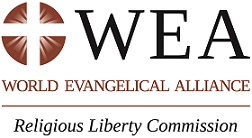The worrying impact of COVID-19 on religious minorities around the world

With the emergence of the COVID-19 crisis, a noticeable rise in authoritarianism has resulted in increased repression of religious minorities around the world. From discrimination, hate speech, disinformation, to scapegoating of religious minorities for the spread of the virus—the pandemic has had a telling impact on minority faith communities. Physical distancing measures introduced globally has also meant that businesses, schools, and public gatherings including religious gatherings have been put on hold or restricted to a large extent. The freedom of religion or belief entails every individual to “either alone or in community with others and in public or private to manifest their religion or belief in worship, teaching, practice and observance.” Efforts to curtail COVID-19, however, have posed significant challenges to this. Moreover, the crisis has also provided the motivation and cover for the increased persecution of minority faith groups by both government and social actors.
Growing authoritarianism and surveillance
The pandemic has seen a dangerous expansion of power by autocratic governments and excessive use of force by law enforcement authorities to administer preventive measures. As stated by Michelle Bachelet, the UN High Commissioner for Human Rights, countries disregarding the rule of law to combat the crisis in the guise of exceptional or emergency measures could spark a human rights disaster. Governments are also increasingly using surveillance technology to gather information, trace movement and track individuals. This is a cause for concern as there are serious questions whether such measures could meet international human rights standards of necessity and proportionality. In some countries such as Sri Lanka and Israel, military intelligence is used for contact tracing. In the hands of restrictive governments, intrusive surveillance could lead to increased restrictions on minorities and pose serious challenges to human rights.
Rising Islamophobia and hate speech
In Sri Lanka, compulsory cremations in violation of WHO guidelines during the COVID-19 pandemic have hurt the religious feelings of Muslims, who are a minority in the country. In one example, the death of a Muslim woman was wrongfully identified as caused by COVID-19 by the authorities. The family was then compelled to cremate the body against their religious sentiments. Moreover, hate speech against Muslims in the country has also been on the rise, after there was severe religious profiling of victims in mainstream media. Similarly, in the UK, far-right groups have used the Coronavirus crisis to fuel anti-Muslim sentiment. According to monitoring groups, fake news has circulated on social media that Muslims were breaching the lockdown by continuing to attend mosques.
Discrimination of religious minorities in the provision of relief
In Myanmar, the Burmese military has been accused of denying Rohingya Muslims access to medical care during the COVID-19 crisis. In Pakistan, a Muslim cleric faced criticism from Christian leaders and human rights activists after he claimed that his organization, Dawat-e-Islami was converting non-Muslims to Islam using COVID-19 aid. According to reports, Christian minorities in the country have also been discriminated in the provision of emergency relief. In Bangladesh, too, there have been reports that the government has provided relief to only Muslims from the Prime Minister’s relief fund. In the Philippines, since pastors are not categorised as self-employed, they have been left out of government welfare schemes.
Inconsistent measures concerning the reopening of religious places of worship
In New Zealand, the government has faced criticism that it had failed to consider the rights to freedom of religion when it drafted the COVID-19 Public Health Response Bill, after concerns were raised that places of religious worship were ordered to remain closed while malls, bars, and other public places were deemed safe to reopen.
A cover for Islamist extremism
Reports have suggested that Islamist terrorist groups have stepped up plans to target Christians using the COVID-19 lockdowns as a cover.
Arrests of leaders of minority faiths
In India, a pastor and 7 others including 3 Christians were arrested while they were preparing relief packs. The authorities accused them of illegally gathering to worship during the COVID-19 lockdown. While in detention they were questioned on whether they were receiving money to convert people. Also, in Nepal, a pastor was arrested on charges of misinformation for stating that prayer could heal COVID-19. He was released and then rearrested on trumped-up charges of outraging religious feelings and proselytism.
A positive development
The rights and well-being of religious minorities should not be neglected or undermined in the pursuit of a safer world.
Conclusion
Religious minorities are facing new challenges and increased vulnerability owing to COVID-19. This requires urgent attention and action on the part of governments and the health authorities battling this crisis. Preventive measures followed by governments must be adequate, proportionate, and guarantee equal treatment. While exercising patience and goodwill during this global pandemic and continuing to follow health regulations as deemed necessary by the authorities, it is also important that human rights agencies, civil society actors and faith groups, where necessary, proactively question the legality of preventive measures and advocate for the rights of religious minorities to ensure their protection and halt governmental overreach. The rights and well-being of religious minorities should not be neglected or undermined in the pursuit of a safer world.
WEA-RLC Research and Analysis Report
June 18, 2020

World Evangelical Alliance (WEA) Religious Liberty Commission (RLC) sponsors the WEA-RLC Research & Analysis Report to help individuals and groups pray for and act on religious liberty issues around the world. WEA has a consultative status with the UN Economic and Social Council. This report was researched and written by Jose Henriques, and moderated by the WEA-RLC Executive Director, Godfrey Yogarajah.
Category: In Depth, Spring 2020


